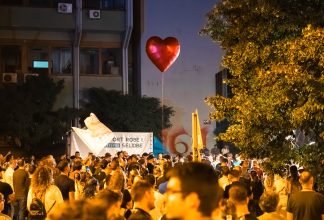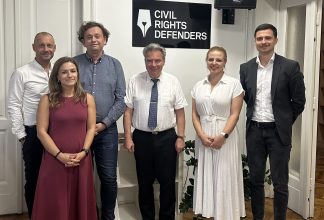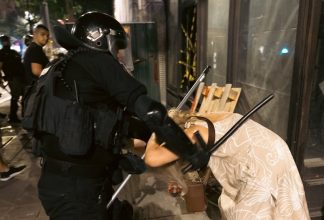Brutal police violence against protesters in Serbia
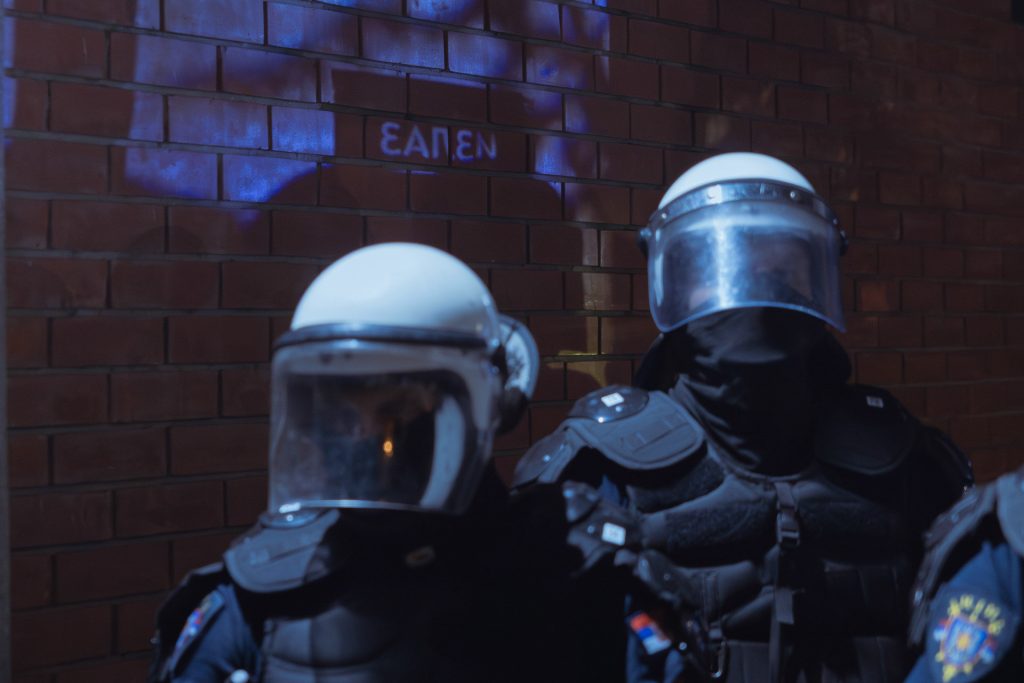
Threats of rape, slapping, kicking, spitting, insults, and smashed phones: that is how nine people described what happened to them at the hands of the police, after they were apprehended and detained in the basement of the Serbian government’s headquarters. Civil Rights Defenders’ Legal Director decries the events as a serious violation of international law that could amount to torture.
In mid-August, a sub-unit of the Serbian police detained at least 15 people at one of the pro-democracy protests that have been raging across the country for months. Some of the detainees were actual protesters; others were passers-by who hadn’t participated in the protest. All of them were shuttled to a dingy, cramped garage in the government’s headquarters.
The Balkan Investigative Reporting Network (BIRN) obtained testimonies from nine of the detainees. All but one (a foreign national) were brutally mistreated. This is the harrowing tale of what they were subjected to.
Kicked, slapped, pepper-sprayed, and spat on
Physics student Dusan Cvetkovic was arrested by plainclothes police officers. “Four or five officers ran over and slammed me into the concrete. They started kicking me in the head with their boots, shouting ‘Don’t resist, don’t resist!’ I yelled that I wasn’t resisting, but that didn’t help much.”
Cvetkovic and others were taken to the government’s headquarters. “They threw me on the floor and handcuffed me. A senior officer asked what I had been doing at the protest, to which I answered I had been exercising my civil rights. He slapped me for that. ‘I’ll give you civil rights,’ he shouted, ‘don’t let me see your face again.’”
Stevan Zdravkovic shares a similar story. “They forced us to sit with our backs against the wall, then sprayed pepper spray in our faces. None of us were able to physically resist. The unit’s commander [Marko Kricak] approached each one of us, kicking us in the stomach, stamping us in the head, and then spitting in our faces. He also took all of our phones, stamping on them and destroying them with his baton.”
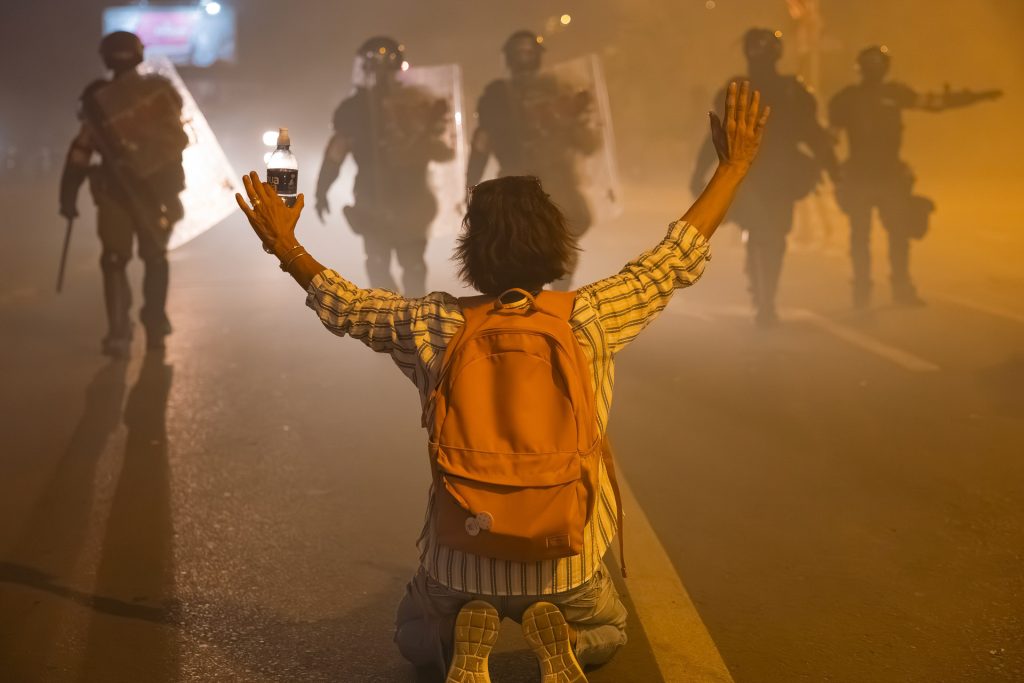
Could constitute an act of torture
Several of the detainees stated Kricak warned them they’d be “mutilated” if they told anyone what happened.
John Stauffer, Civil Rights Defenders’ Legal Director, views the Serbian police’s misconduct as a serious breach of international legal frameworks. “Slapping and kicking detainees, spitting on them, verbal degradation, and threats of violence and death amount to cruel, inhumane, and degrading treatment. Deliberately inflicting fear and suffering, even in the absence of physical violence, may constitute an act of torture under international law.”
“Neither orders by one’s superiors nor exceptional circumstances – like threats to national security, political instability, or any other form of public emergency – may be invoked to justify such actions,” Stauffer warns.
Misogynistic remarks and threats of sexual violence
Later, a second group of detainees was brought to the garage. Nikolina Sindjelic was among them, and had her backpack searched by the police. The officers found a camera – which seemed to particularly upset them – and a flare. She told them the flare wasn’t hers, that it belonged to a friend.
Commander Kricac proceeded to direct misogynistic slurs at Sindjelic, interrogating her about why she was at the protest. “He shouted and slapped me. I tried to protect myself, shielding my head with my hands. I told him I had the right to be at the protest, but he kept hitting me and making horrific threats. He actively humiliated me.”
Sindjelic testified the commander explicitly threatened to subject her to sexual violence.
“I’m not going to wait for an ambulance for you”
Even when most of the officers had left the garage, the fear in the room remained palpable, Zdravkovic testified. He had scrapes and bruises but was too afraid to complain, and can’t remember if he was handcuffed at any point or if he just followed orders and kept his hands firmly behind his back.
“When they asked if I was thirsty, I was afraid to ask for water, because I didn’t know whether they would view it as another reason to beat me. I literally didn’t know how to answer.”
Stauffer says Zdravkovic’ words signal he was experiencing severe mental distress. “Signs like confusion, memory loss, and fear of answering basic questions indicate psychological suffering that can be linked to the definition of torture.”
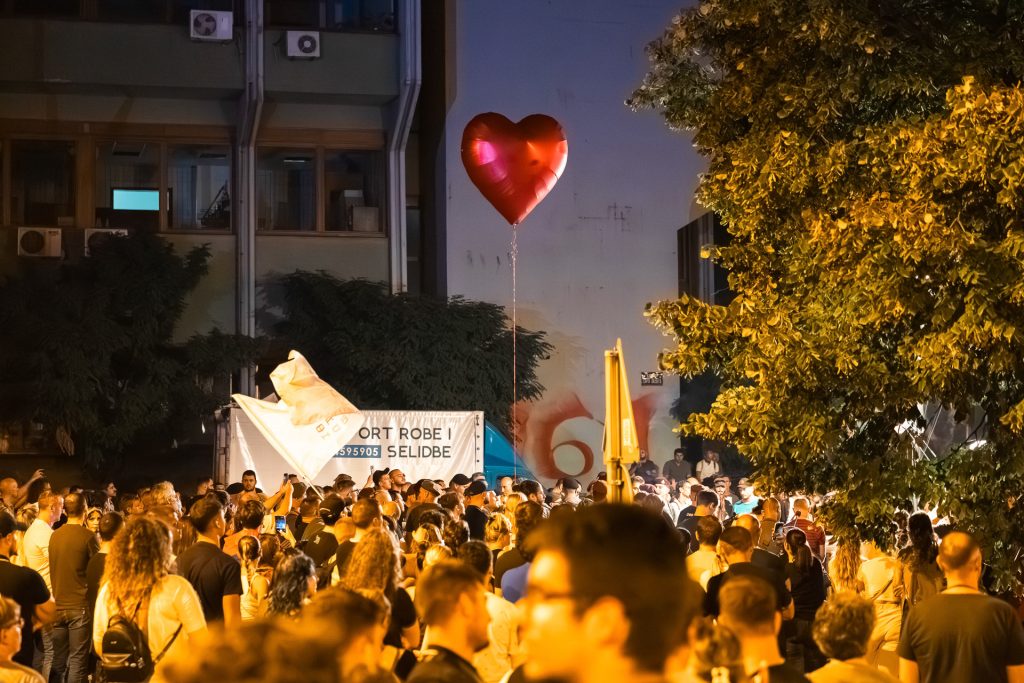
None of the detainees dared to request medical help. “When they asked us after several hours if we had any injuries, most of us said we were fine; we just wanted to leave as soon as possible. I said that I hoped I wasn’t injured,” Cvetkovic recalls. “That angered Kricak. ‘What do you mean you hope so? I’m not going to wait for an ambulance for two hours!’ he yelled. So then I just said I had no injuries.”
According to international human rights standards, law enforcement officers are responsible for fully protecting the health of individuals in their custody, including taking immediate action to secure medical attention when needed.
“No indications the police did anything wrong”
The police’s brutality came to light the next day, when Sindjelic and Zdravkovic spoke out about their mistreatment on television.
Mere hours later, the Interior Ministry issued a press release denying what happened and saying the police had acted in line with the law. The Police Director himself said there were no indications that commander Kricak had exceeded his authority and that, until proven otherwise, he and his unit would continue to do their job.
It is unclear whether an internal police investigation will be conducted.
What happened at the government’s headquarters was unfortunately not a one-off. In recent months, there have been testimonies and footage of police brutality from numerous cities across Serbia, where police officers have used excessive force, arrested children, and humiliated detained citizens.
——-
This article is an abridged version of a longer piece written by Jelena Zoric and Gordana Andric of BIRN.
